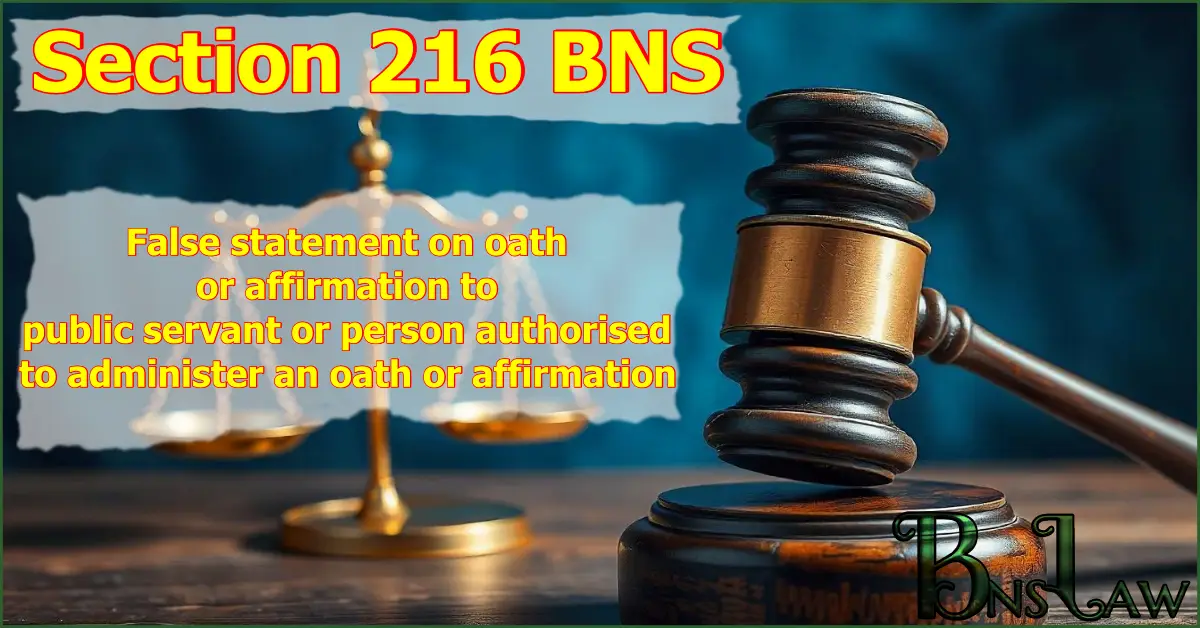Section 216 BNS | BNS 216
Whoever, being legally bound by an oath or affirmation to state the truth on any subject to any public servant or other person authorised by law to administer such oath or affirmation, makes, to such public servant or other person as aforesaid, touching that subject, any statement which is false, and which he either knows or believes to be false or does not believe to be true, shall be punished with imprisonment of either description for a term which may extend to three years, and shall also be liable to fine.
READ OTHER SECTIONS OF CHAPTER XIII — OF CONTEMPTS OF THE LAWFUL AUTHORITY OF PUBLIC SERVANTS
FAQs of BNS Section 216
-
216 BNS punishment and fine
Punishment and fine under Section 216 of the BNS: Imprisonment for 3 years and fine.
-
216 BNS cognizable or not
The offence under Section 216 of the BNS is non-cognizable.
-
216 BNS bailable or not
The offence under Section 216 of the BNS is bailable.
-
216 BNS trial court
Offence specified in Section 216 of the BNS is triable by the Magistrate of the first class.
Important Points
- Cognizable Offences: These are offences where a police officer can arrest a person without a warrant.
- Non-Cognizable Offences: These are offences where a police officer cannot arrest a person without a warrant.
- Bailable Offences: These are offences where the accused can get bail from the police station itself. All bailable offences are listed in the First Schedule of the Bharatiya Nagarik Suraksha Sanhita (BNSS).
- Non-Bailable Offences: Offences in which bail is not granted directly from the police station but after hearing the case in the court, the judge decides when bail will be granted. All non-bailable offences are listed in the first schedule of the Bharatiya Nagarik Suraksha Sanhita (BNSS).
- In the above FAQ, “trial court” means the court that has jurisdiction to try the offence.
- In the above FAQ, the expression “Magistrate of the first class” and “Any Magistrate” does not include Executive Magistrates.
Read other Sections of the BNS
Reference Link: New Criminal Laws (BNS), Ministry of Home Affairs







